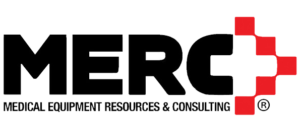Five Mistakes to Avoid in Healthcare Facility Transition Planning
Every project offers an opportunity to gain valuable knowledge. MERCs deep experience in healthcare facility transition planning has enabled us to pinpoint steps that prime projects for success and the most common errors. In this overview, we identify the five top mistakes often committed in transition planning. This background will help ensure your upcoming transition progresses as smoothly as possible.
- Starting the process too early Its often stated that you can never start a healthcare facility transition plan too early. The trouble is that it can create planning fatigue and resentment among staff because it consumes too much of their time. This is detrimental when many staff are paid to care for patients. A major change like this requires all team members to pull together to get the transition completed, not to avoid the planning because they are worn out by it.
- Starting the process too late Waiting too late obviously prevents planning with sufficient detail to create a smooth transition. Additionally, the costs associated with expediting processes and the added risk for error cannot be overstated. Nobody likes additional costs and planning by shooting from the hip when it involves a hospital project that could well have a budget into the millions of dollars. Its a risk that isnt worth taking.
- Making the process too inclusive When it comes to transition planning, inclusiveness implies empowerment and authority. But having too many participants creates the classic predicament of too many cooks. It slows progress and can turn your facility transition into a political and/or bureaucratic quagmire. It may seem to be the right thing to do, but limiting participants it to the essential players is the best way to avoid gridlock.
- Not including the right stakeholders Just as making things too inclusive is a mistake, not getting the right stakeholders involved is another. You dont know what you dont know, so your transition team has to include the right team members to give insight into all critical areas.
- Inflexibility – A healthcare facility transition creates operational challenges. Everyone involved has to give a little to get things done. Participants who magnify obstacles and demands add cost, complexity, risk and anxiety for the team and the project in general.
We hope this overview has given you a starting point for effectively managing your project. If you have any further questions about hospital transition planning or any of MERCs medical equipment consulting services, contact us today. We are here to help you achieve the right solution to your needs!

